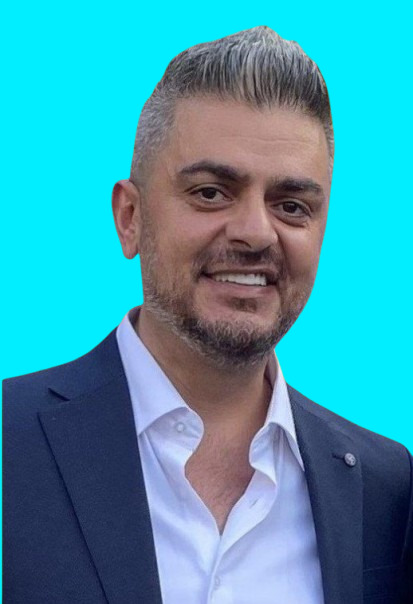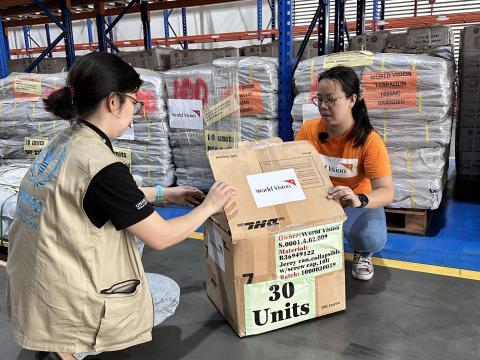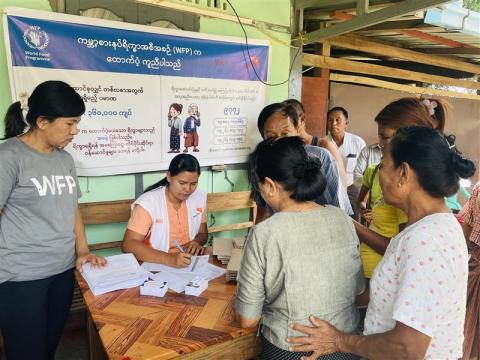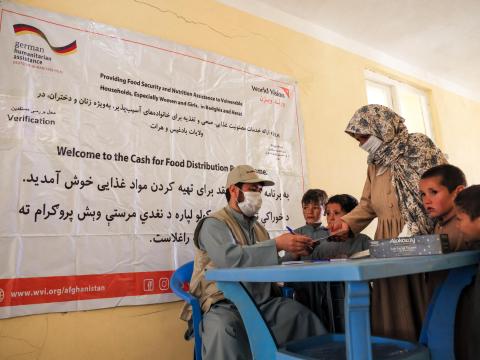
Trust: The bedrock of effective Cash and Voucher Programming (CVP)
Youssef Mhanna shares the importance of fostering transparent, accountable partnerships with local vendors and communities as a foundation for inclusive, evidence-based cash and voucher programming (CVP) in crisis-affected regions.
CVP is a proven tool for delivering life-saving assistance, restoring dignity, and boosting local economies during humanitarian emergencies. Yet one critical ingredient is often overlooked: trust.
At World Vision, we’ve learned that transparent, accountable partnerships with local vendors and trust-driven community engagement are the backbone of impactful CVP. When trust is embedded in every layer of a project, the outcomes are transformative.
Why CVP works
CVP empowers families to make their own decisions and access assistance without compromising dignity. Whether through vouchers or mobile cash transfers, participants choose how funds are spent, whether on food, school supplies, or hygiene items—all while stimulating local markets.
In Lebanon, Bouchra, a mother of four, joined a Cash-for-Work project and used her earnings to enrol her children in school. In Myanmar, after a devastating earthquake, cash assistance helped Mi Mi, a 65-year-old who lost her livelihood and sustained serious injuries, to access urgent medical care. CVP moves beyond transactions to provide assistance tailored to people’s realities.
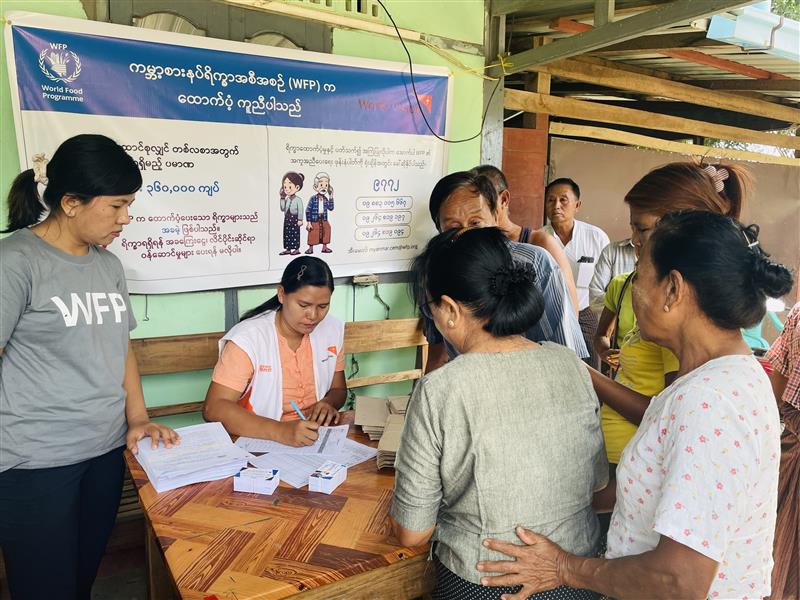
Successful cash programmes, however, hinge on strong partnerships with local vendors. The mutual accountability, reliability, empathy, and professionalism of these frontline partners directly affect the dignity and welfare of the communities we serve. As a result, World Vision invests throughout the programme cycle in building partnerships to ensure CVP is accountable and effective.
World Vision’s blueprint for accountable CVP
1. Ground modality selection in evidence
In the ever-evolving landscape of humanitarian responses, comprehensive feasibility studies assessing community needs, market dynamics, infrastructure, and security are vital for modality selection. Whether to use paper vouchers, mobile money, or other support should be based on real-time data and driven by digital readiness.
In areas with low connectivity, paper vouchers are often effective. In West Africa, however, 55% of CVP is now delivered via e-vouchers or mobile money. From 2018 to 2024, World Vision delivered $81M in CVP in Mali and $41M in CAR, using vouchers, direct cash, and mobile money through Financial Service Providers (FSPs) and local retailers, allowing participants the freedom to choose food items for purchase which boosted dietary diversity and promoted dignity.
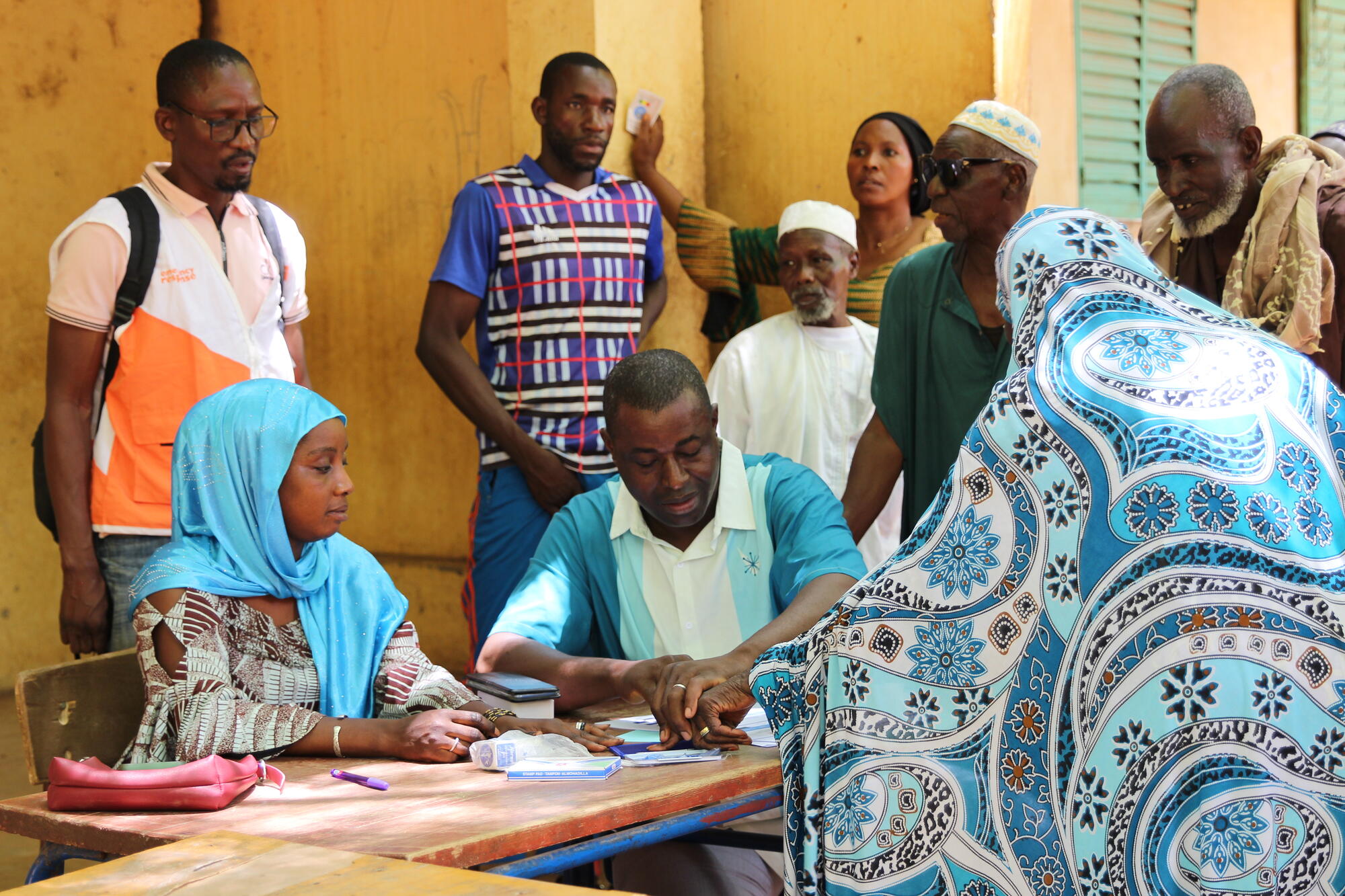
When organisations align their modality choices with the existing operational environment, the assistance delivered is more impactful.
2. Champion fair tenders and clear contracts
Transparent, criteria-based vendor selection through formal tendering ensures fairness and accountability. By evaluating shops on capacity, location, inventory, and compliance, we ensure equity and efficiency in programme delivery, while giving every potential vendor a fair chance.
Clear contracts follow the selection process, outlining roles, programme goals, safeguarding expectations, and consequences for misuse, which help to build mutual trust. Strong SOPs and policies help us uphold the integrity of our programmes for the people we serve.
In Iraq, after vendor selection, World Vision’s engagement with vendors continues throughout the implementation process to ensure responsiveness and quality service delivery.
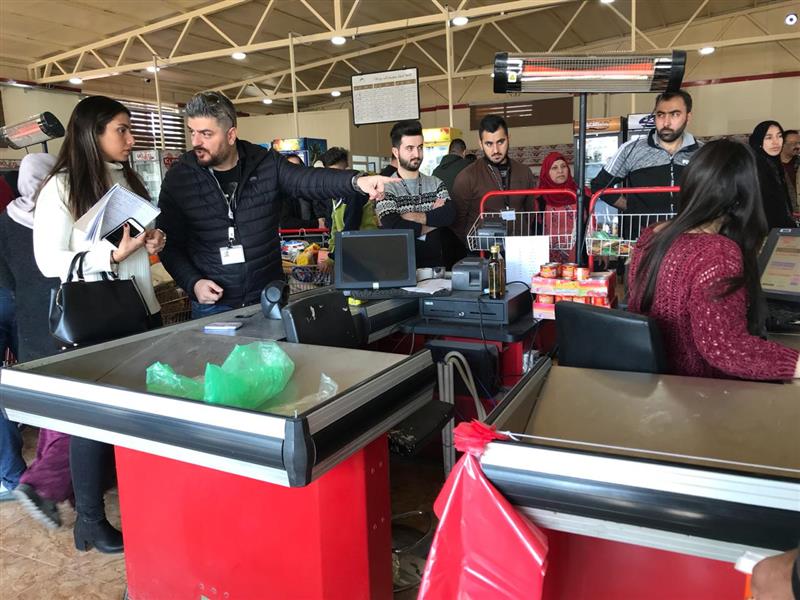
3. Train vendors and recipients to effectively participate
Since vendors are not only service providers but also partners in achieving a common humanitarian mission, World Vision provides training on both the logistics of the redemption process and the humanitarian purpose of the programme. Training for affected communities is also non-negotiable. Programme participants must be empowered with clear, respectful guidance on their rights, the voucher redemption process, and how to raise concerns with World Vision. This dual training model upholds the dignity of those we serve and promotes respect, participation, and smoother implementation.
In Lebanon, a WFP-funded project transitioned from in-kind assistance to paper vouchers in 2012, followed by a shift to e-vouchers. Both vendors and recipients received training as part of this process, with special efforts made to support elderly and low-literacy individuals with meaningfully participating in the new system.
4. Strengthen real-time accountability mechanisms
A robust complaint and response mechanism (CRM) provides an essential avenue for recipients and vendors to share feedback through multiple feedback channels such as a hotline, pre-redemption shop visits, help desks, suggestion boxes, real-time monitoring, focus group discussions, and post-distribution follow-ups. These systems allow us to adapt quickly when concerns arise and to maintain trust with vendors and communities.
In Iraq, the MEAL team introduced a creative “gallery walk”—a hand-painted display that communicated key messages about the project and encouraged community feedback. When people feel heard, they engage more fully. When shopkeepers know they’re supported, they deliver better service. And when organisations listen to real-time feedback and adapt, programmes improve.
A strong CRM is the foundation for dignity, accountability, and continuous improvement.
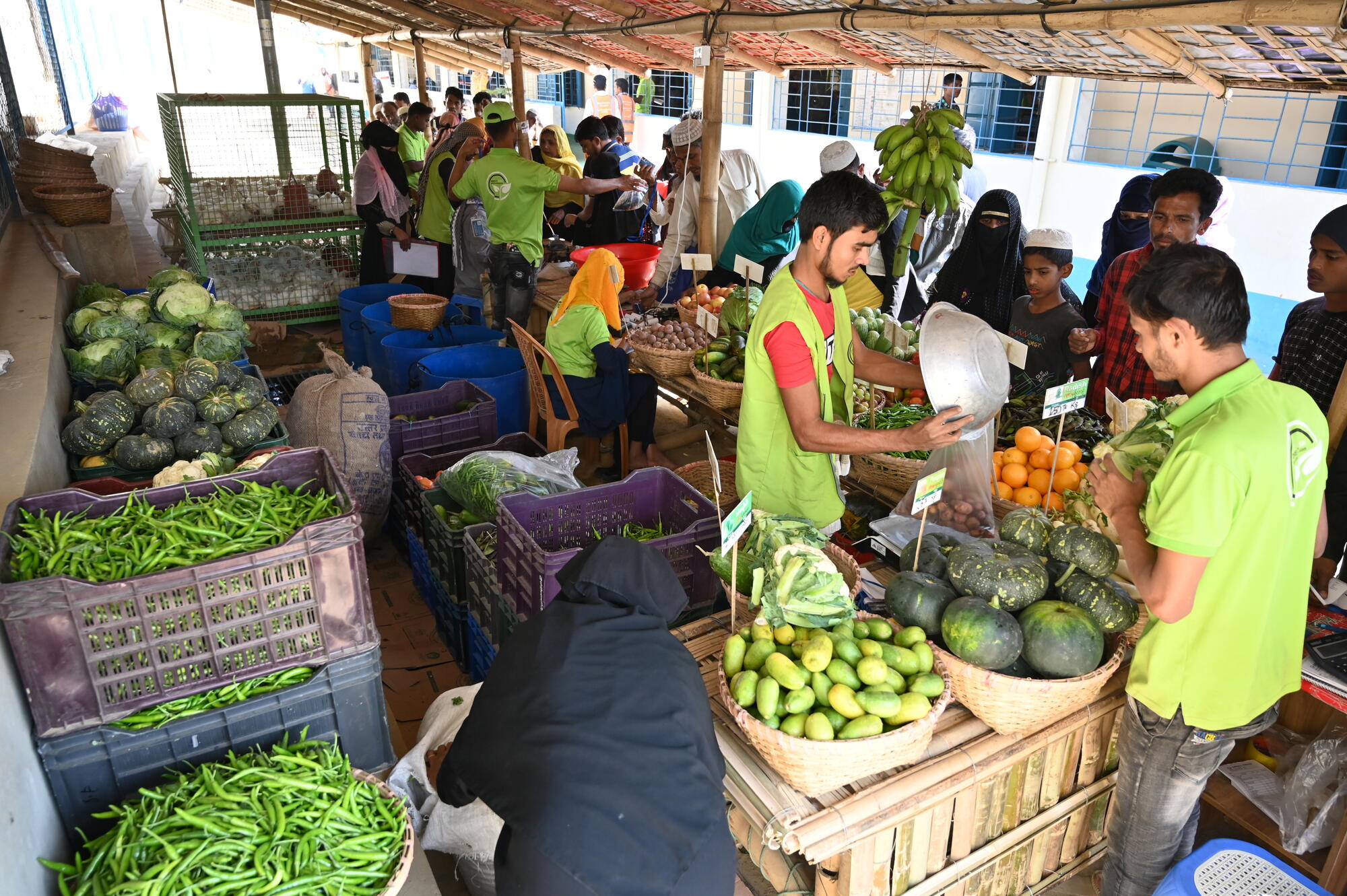
5. Prioritise timely communication and payments
In CVP, success hinges on clear communication and timely payments. Regular dialogue with shopkeepers and community representatives surfaces real-time challenges and sparks ideas for improvement, ensuring that programmes remain responsive and grounded in local realities.
Equally vital is the prompt payment of shopkeepers. Delays erode trust and risk disengagement, while timely transactions reinforce reliability and sustain local economies. Paying shopkeepers on time helps to maintain vendor trust, supply chain stability and community satisfaction.
6. Build inclusive processes
The true measure of success in humanitarian action lies not just in how many people we reach, but in whether quality services meaningfully include people often left behind.
For example, if we fail to consider the unique needs of people with disabilities during voucher distribution or redemption, we risk reinforcing the inequalities we aim to dismantle. Whether through designated service lines, home delivery or proxy arrangements approved by community committees, we must ensure no one is excluded.
In Moldova, World Vision adapted our registration process to support people with access challenges by setting up in-person registration desks for people with limited digital literacy and conducting door-to-door visits to register individuals with disabilities.
7. Support preparedness and economic resilience
Cash programming has the potential to support communities not just during crises, but long before disaster strikes. Pre-positioning voucher contracts and digital systems with local suppliers means we can respond faster when emergencies hit. Investing in local vendors and involving them as partners in transformation also stimulates local job creation, supply chain development, and business growth, which strengthens the economic resilience of communities and builds disaster preparedness.
Trust is not optional
Trust and accountability are the bedrock of CVP and the foundation of people-centred humanitarian action.
At World Vision, we have seen first-hand how transparent partnerships with vendors and inclusive community engagement transform the lives of children and communities affected by crisis and contribute to resilience.
When managed with integrity and trust, CVP empowers families, supports local economies and restores dignity amid crises.
Youssef Mhanna is the Senior Technical Advisor, Cash Transfers & Market-based Programming for World Vision International. With over 20 years of experience, he has built and led mega operations and driven strategic business initiatives across multiple countries, including Lebanon, Iraq, Turkey, Syria and Moldova. He is a certified CALP trainer and mentor in World vision Cash Academy with expertise in developing tools, SOPs, partnerships with financial service providers and traders and implementing CVP strategies in fragile and conflict-affected contexts.
